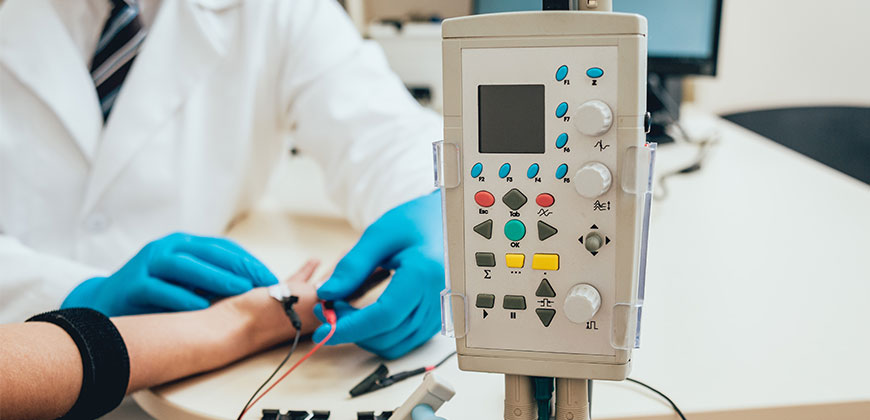How is MND diagnosed?
Motor neurone disease (MND) can be difficult to diagnose because the initial symptoms can be similar to many other conditions.
Neurologists will often use a series of tests to eliminate other conditions before making a definitive diagnosis of MND. They will often request a second Neurologist consultation to confirm the diagnosis
Tests may include:
- Blood tests to look for a rise in a creatine kinase, which is produced when muscle breaks down.
- Nerve conduction studies (NCS), which involve taping electrodes over nerves and recording muscle activity when nerves are stimulated by electrical impulses.
- Electromyography (EMG), which involves inserting a needle electrode into muscles to measure their electrical activity.
- Magnetic Resonance Imagery (MRI) scans, which involve being placed in a cylinder-like machine. The machine takes images of the internal structures of the body and can show up damaged areas. An MRI scan will not diagnose Motor Neurone Disease, as the damage caused by this disease does not show up on this scan. However, it may be used to eliminate other conditions which can mimic symptoms of MND.
